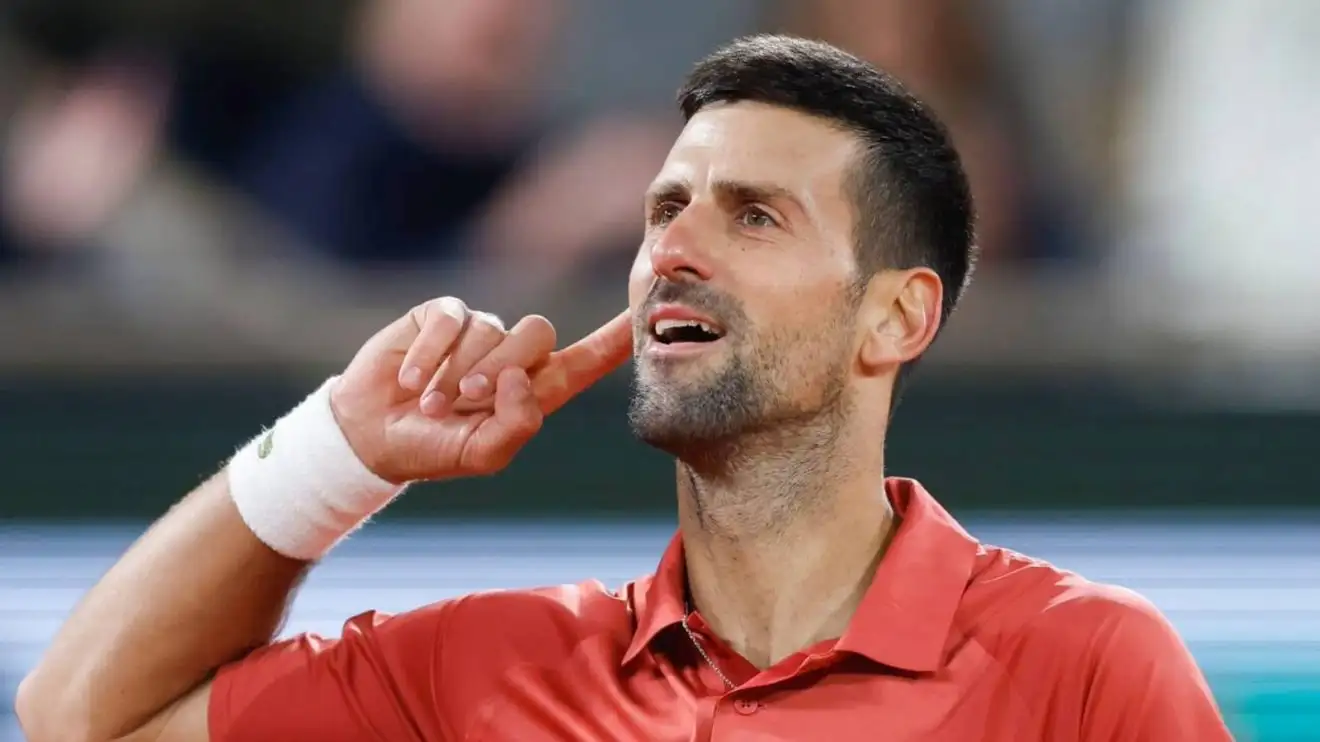
Tennis players often find themselves facing a unique challenge when competing in France, particularly at the prestigious French Open and the Paris Masters. While the athletes may never admit it openly, many likely experience a sense of dread at the prospect of playing in front of the notoriously boisterous French crowd. The atmosphere can be electric, but it often veers into chaos, with fans exhibiting behavior that can be both distracting and disrespectful.
Before the first serve is even struck, spectators have already begun their antics. It’s a common sight to see a fan in the stands attempting to mimic the trumpet sounds of traditional Spanish bullfight music, known as pasodobles españoles. These attempts at garnering attention often lead to a wave of cheers from nearby fans, encouraging the spectacle to continue. Unfortunately, this disruptive behavior doesn’t stop at warm-ups; it frequently spills over into the match, particularly when players are preparing to serve. The focus required in such high-stakes moments is compromised, not by the opponent, but by the crowd.
In addition to the trumpeting and cheering, players must contend with fans who scream at them for engaging in even the most respectful discussions with the chair umpire. The situation is exacerbated when a French player is involved, as the crowd’s allegiance to their compatriots often results in a hostile environment for anyone daring to compete against them. This deeply ingrained culture of partisanship is not a new phenomenon; it has long been a characteristic of tennis crowds in France.
Novak Djokovic, one of the sport’s biggest stars, has spoken candidly about the challenges of playing in such an atmosphere. During the French Open last summer, he noted the passionate nature of the French fans, acknowledging both the highs and lows of their support. “They are very passionate fans,” he remarked, recognizing that their fervor can sometimes cross the line into rudeness. “I have experienced both sides,” Djokovic explained, referring to his own love-hate relationship with the crowd. “Obviously, you always want to be the one that they support or at least have a neutral atmosphere, but it’s not always possible.”
Djokovic’s observations highlight an important aspect of the sporting experience: the balance between passionate support and respectful behavior. He pointed out that while it is natural for fans to rally behind their own players, this can lead to an unwelcoming atmosphere for opponents, particularly during critical moments of a match. “When you’re playing against a French player… that’s where you have to just be aware that you’re going into a big battle; not just with your opponent,” he added, underscoring the dual challenge faced by players.
The issue of crowd behavior is not isolated to high-profile matches. Reports from lesser-known encounters also reveal that the rowdiness can escalate, with fans becoming even louder and more inappropriate on the outer courts. Djokovic noted, “It’s part of what we do; it’s part of sport,” but it begs the question of where the line should be drawn. He contrasted the atmosphere at the French Open with that of Wimbledon, which is steeped in tradition and typically features a more subdued crowd. “You want to see fans cheering and chanting songs for their player or country; that’s beautiful to experience,” he stated, emphasizing the importance of creating an enjoyable environment for both players and spectators alike.
The disruptive behavior reaches a peak during critical moments in matches. Take, for instance, the recent match between Ugo Humbert and Carlos Alcaraz, where the tension in the final moments was marred by chaotic shouting and antics from the crowd. While it’s expected that fans will cheer for the home favorite, the atmosphere should reflect the significance of the occasion. The unwarranted outbursts, possibly fueled by overindulgence in pre-match refreshments, detracted from the integrity of the sport.
While fans should feel free to express their support, it is vital that they also respect the players’ efforts and the nature of the sport. Tennis requires focus and concentration, and excessive noise or interruptions only serve to undermine the competitive spirit. Umpires often find themselves having to plead with spectators to maintain decorum, a task that should not fall solely on their shoulders.
To combat this trend, stricter measures could be implemented. Umpires and security personnel should be empowered to address unruly behavior more decisively. A single warning for disruptive fans might suffice, but repeated offenses should result in ejection from the venue. If spectators are removed for poor conduct, it could serve as a deterrent, encouraging others to reconsider their behavior.
France is fortunate to host a Grand Slam and a Masters tournament, events that contribute significantly to the global tennis calendar. However, the actions of a few can overshadow the positive experiences that these tournaments offer. Ultimately, it is the responsibility of both the fans and the organizers to foster an atmosphere that respects the players and enhances the experience for everyone involved. Only then can the true spirit of tennis shine through, allowing players and fans alike to enjoy the spectacle in a respectful and celebratory environment.
Leave a Reply